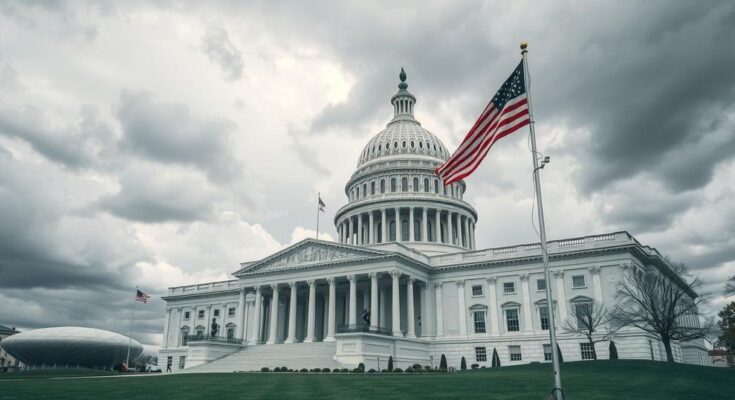Daniel Noboa, Ecuador’s 37-year-old president, seeks reelection after a brief but impactful term, focusing on crime reduction amid rising violence. Facing 15 candidates, he aims to secure a full four-year term. Noboa’s controversial methods and internal strife within his administration characterize his presidency as he navigates the upcoming election.
Ecuadorian President Daniel Noboa is campaigning for reelection ahead of the February 9 election. At just 37 years old, Noboa previously surprised voters by securing a 16-month presidency after advancing from an unexpected performance in the 2023 snap elections. Despite only serving for a short time, he aims to continue combatting crime and enhancing security, issues that resonate with many Ecuadorians frustrated by rising violence.
Noboa began his political journey in 2021, winning a position in the National Assembly and later chairing its Economic Development Commission. His victory in the October 2023 runoff against leftist candidate Luisa González followed a political upheaval initiated by former President Guillermo Lasso’s decision to disband the National Assembly. This was a pivotal moment for the young politician as he emerged as a prominent conservative voice.
In the upcoming election, Noboa faces 15 other candidates, including González, who is aligned with former President Rafael Correa. To secure an outright win, a candidate must achieve either 50% of the vote or at least 40% combined with a 10-point lead over the nearest competitor. If no candidate meets this threshold, a runoff election is scheduled for April 13.
Under Noboa’s leadership, the homicide rate saw a decline from 8,237 in 2023 to 6,964 in the following year, reflecting some success in his security initiatives. Observers note that public perception acknowledges his efforts, enhancing his prospects for reelection. However, despite this progress, murder rates remain significantly higher than historical averages.
Nevertheless, Noboa’s methods have drawn scrutiny. He declared a state of internal armed conflict to deploy military forces against organized crime, which raised concerns about civil liberties and governance norms. Additionally, he conducted a controversial police operation at Mexico’s embassy to apprehend a fugitive, raising eyebrows among international leaders.
Conflict has arisen with his Vice President, Verónica Abad, since the onset of his presidency, culminating in her reassignment as ambassador to Israel, a move interpreted as an attempt to distance her from the administration. Scholars suggest that Noboa’s use of power to manipulate legal frameworks may continue should he secure a second term.
Daniel Noboa’s tenure as Ecuador’s president commenced in an unexpected election filled with complication and drama. With just a brief legislative background and the backing of his family’s business interests in the banana industry, Noboa managed to capture the public’s interest with his focus on security, a pressing issue due to increasing violence and crime rates in Ecuador. His ability to adapt within this political landscape, fighting against organized crime while traversing a challenging environment, forms the basis for his current presidential campaign and reelection bid. Ecuador’s electoral system mandates a significant vote share for securing a presidency, setting forth potential competitive dynamics as he faces various opponents. Notably, the electorate remains divided between conservative and leftist ideologies rooted in historical governance issues from Correa’s administration prior to Lasso.
In summary, President Daniel Noboa’s reelection campaign illustrates the complexities of Ecuadorian politics amid a backdrop of rising crime and public insecurity. His brief presidency, marked by urgent crime-fighting initiatives, has gained considerable support yet is marred by controversial methods and internal disputes. As Noboa approaches the pivotal election on February 9, his capacity to retain support hinges upon public perception of his effectiveness and ability to address the country’s escalating challenges.
Original Source: apnews.com




